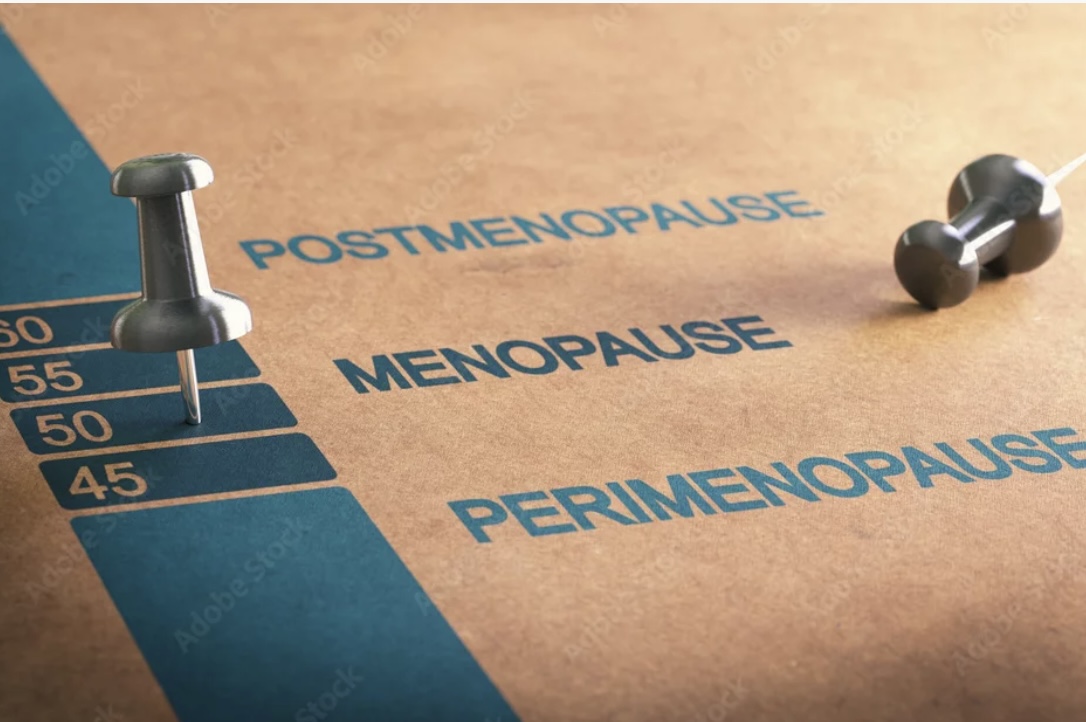
Menopause: Let’s Talk About It
(An Article from TheWellnessSpace)
Menopause is a natural phase in every woman’s life, marking the end of her reproductive years. It is not just a single event but a transition that can span several years, affecting the body in profound ways. Yet, menopause remains a topic that many shy away from discussing openly. At TheWellnessSpace, we believe that understanding menopause—what it is, how long it lasts, and how to manage it—is key to navigating this life stage with confidence and grace.
What Is Menopause?
Menopause is defined as the point in a woman’s life when she has gone 12 consecutive months without a menstrual period. It occurs because the ovaries stop producing eggs and the levels of hormones like estrogen and progesterone decline.
This transition typically happens between the ages of 45 and 55, but the timing can vary. Menopause is divided into three phases:
-
Perimenopause (Pre-Menopause):
- This is the transitional period leading up to menopause. It can begin several years before menopause, often in a woman’s 40s.
- Hormone levels fluctuate, and menstrual cycles become irregular.
- Symptoms like hot flashes, mood swings, and sleep disturbances often start during this phase.
-
Menopause:
- This is the official cessation of menstruation, marked after 12 months without a period.
- The ovaries produce very little estrogen, and symptoms can intensify during this phase.
-
Post-Menopause:
- The years following menopause. Symptoms may continue but usually become less severe over time.
- Women in this phase are at higher risk for certain health conditions, such as osteoporosis and cardiovascular disease, due to low estrogen levels.
How Long Does Menopause Last?
The duration of menopause varies greatly from woman to woman. On average:
- Perimenopause can last anywhere from 4 to 10 years.
- Menopause itself is a single point in time, but the associated symptoms can persist for several years before and after.
- Post-Menopausal Symptoms can linger for 4 to 5 years, though some women experience mild symptoms well into their later years.
Symptoms of Menopause
Menopause symptoms can affect multiple aspects of a woman’s health and well-being. The most common symptoms include:
- Hot Flashes and Night Sweats: Sudden feelings of intense heat, often accompanied by sweating and a flushed face.
- Sleep Disturbances: Insomnia or frequent waking due to night sweats.
- Mood Swings: Increased irritability, anxiety, or feelings of depression.
- Vaginal Dryness: Declining estrogen levels can lead to dryness and discomfort during intercourse.
- Decreased Libido: Changes in hormone levels can affect sexual desire.
- Weight Gain: Slower metabolism and hormonal changes may contribute to weight gain.
- Bone Loss: Reduced estrogen levels can lead to osteoporosis.
- Heart Health Issues: Higher risk of cardiovascular disease due to declining estrogen.
Things to Watch Out For
While menopause is a natural process, there are certain health risks and concerns to be mindful of during and after this transition:
-
Bone Health:
- Declining estrogen can lead to significant bone loss, increasing the risk of fractures.
-
Heart Health:
- Lower estrogen levels can increase bad cholesterol (LDL) and decrease good cholesterol (HDL), heightening the risk of heart disease.
-
Mental Health:
- Mood swings and anxiety are common, and some women may experience depression.
-
Vaginal and Bladder Issues:
- Vaginal atrophy and urinary incontinence are potential issues post-menopause.
-
Weight Management:
- A slower metabolism can make weight gain more likely, increasing the risk of diabetes and other health conditions.
What Can Help?
Managing menopause effectively involves a combination of lifestyle changes, medical treatments, and holistic approaches. Here’s what can help:
1. Lifestyle Adjustments
- Healthy Diet:
- Focus on calcium and vitamin D-rich foods to support bone health.
- Include lean proteins, whole grains, and healthy fats. Avoid processed foods and limit caffeine and alcohol, which can trigger hot flashes.
- Regular Exercise:
- Weight-bearing exercises like walking or strength training can improve bone density.
- Cardiovascular exercises support heart health and help manage weight.
2. Medical Treatments
- Hormone Replacement Therapy (HRT):
- HRT can alleviate symptoms like hot flashes and vaginal dryness by restoring hormone levels. However, it may not be suitable for everyone, so consult a healthcare provider.
- Non-Hormonal Medications:
- Some medications can address specific symptoms, such as antidepressants for mood swings or medications for hot flashes.
3. Natural Remedies
- Herbal Supplements:
- Black cohosh, red clover, and evening primrose oil are commonly used for menopause symptoms. However, always check with a doctor before starting supplements.
- Mind-Body Practices:
- Practices like yoga, meditation, and mindfulness can reduce stress and improve sleep.
4. Hydration and Skin Care
- Stay hydrated to combat dryness. Use moisturisers and gentle cleansers to care for aging skin.
5. Pelvic Floor Exercises:
- Strengthening pelvic muscles with Kegel exercises can help reduce urinary incontinence and improve sexual health.
When to See a Doctor
It’s important to consult a healthcare professional if:
- Symptoms significantly interfere with daily life.
- You experience unusual symptoms, such as heavy bleeding or spotting post-menopause.
- You have concerns about your risk for osteoporosis, heart disease, or other conditions.
Embrace This New Chapter
Menopause is not an end—it’s a new beginning. By understanding the changes your body is going through and taking proactive steps to manage your health, you can navigate this phase with confidence and strength.
At TheWellnessSpace, we believe in empowering women to embrace menopause as an opportunity to prioritise self-care and well-being. Let’s continue the conversation—because every woman deserves to feel her best at every stage of life.
Would you like to learn more about managing menopause or share your experiences? Let us know in the comments below! Or visit or community forum.
Recommended Reads for Your Journey:
Below, you'll find a carefully curated selection of books. Some of these are personal favourites that have inspired and enriched my life, while others come highly recommended by readers and critics alike. Whether you're seeking knowledge, entertainment, or inspiration, these books are worth exploring. If you choose to purchase through these affiliate links, I may earn a small commission at no extra cost to you—thank you for supporting my work!
The Mental Toughness Handbook: A Step-By-Step Guide to Facing Life's Challenges, Managing Negative Emotions, and Overcoming Adversity with Courage and Poise - by Damon Zahariades https://amzn.to/3Q6DG7s
Open When…: The Instant Sunday Times No. 1 Bestseller from the author of Why Has Nobody Told Me This Before? - by Julie Smith https://amzn.to/3Ev4ewA
Menopausing: The new edition of the award-winning guide, updated to help you cope with symptoms and live your best life during menopause - by Davina McCall https://amzn.to/4k7arPF
Preparing for the Perimenopause and Menopause: No. 1 Sunday Times Bestseller (Penguin Life Expert Series, 1)- by Dr Louise Newson https://amzn.to/4ibkKAe



